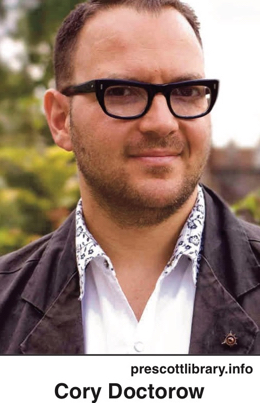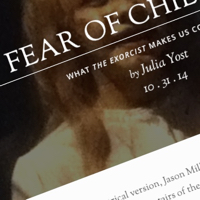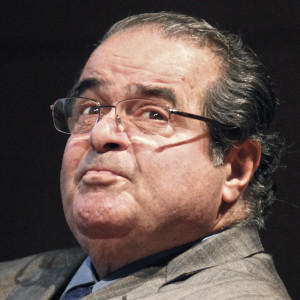Rascals case in brief
In the beginning, in 1989, more than 90 children at the Little Rascals Day Care Center in Edenton, North Carolina, accused a total of 20 adults with 429 instances of sexual abuse over a three-year period. It may have all begun with one parent’s complaint about punishment given her child.
Among the alleged perpetrators: the sheriff and mayor. But prosecutors would charge only Robin Byrum, Darlene Harris, Elizabeth “Betsy” Kelly, Robert “Bob” Kelly, Willard Scott Privott, Shelley Stone and Dawn Wilson – the Edenton 7.
Along with sodomy and beatings, allegations included a baby killed with a handgun, a child being hung upside down from a tree and being set on fire and countless other fantastic incidents involving spaceships, hot air balloons, pirate ships and trained sharks.
By the time prosecutors dropped the last charges in 1997, Little Rascals had become North Carolina’s longest and most costly criminal trial. Prosecutors kept defendants jailed in hopes at least one would turn against their supposed co-conspirators. Remarkably, none did. Another shameful record: Five defendants had to wait longer to face their accusers in court than anyone else in North Carolina history.
Between 1991 and 1997, Ofra Bikel produced three extraordinary episodes on the Little Rascals case for the PBS series “Frontline.” Although “Innocence Lost” did not deter prosecutors, it exposed their tactics and fostered nationwide skepticism and dismay.
With each passing year, the absurdity of the Little Rascals charges has become more obvious. But no admission of error has ever come from prosecutors, police, interviewers or parents. This site is devoted to the issues raised by this case.
On Facebook
Click for earlier Facebook posts archived on this site
Click to go to
Today’s random selection from the Little Rascals Day Care archives….
Click for earlier Facebook posts archived on this site
Click to go to
Today’s random selection from the Little Rascals Day Care archives….
The shocking ease of installing ‘lost memories’
 Feb. 13, 2015
Feb. 13, 2015
“Psychologists terminated a study (of 70 students at a Canadian university) that showed the ease of implanting false memories of committing terrible, violent crimes in the recent past – because some subjects couldn’t be convinced that they hadn’t committed the crime after they were told the truth.”
– From “Police interrogation techniques generate false memories of committing crimes” by Cory Doctorow at Boing Boing (Feb. 9)
More on this recent study from Sarah Barmak at the Toronto Star:
“If subjects said they couldn’t remember the false event, questioners reassured them they would be able to retrieve their ‘lost memories’ if they tried hard enough. If they began to ‘remember,’ experimenters asked for more detail. Do you recall any images? How did you feel? Visualize what it might have been like, they said, and the memory will come back to you….”
“Lost memories,” of course, were the fool’s gold mined so relentlessly by the prosecution therapists in the Little Rascals Day Care case. Remarkably, it took only three 40-minute sessions for the Canadian researchers to corrupt the memories of fully 70 percent of their college-age subjects – the Little Rascals children required months of implantation!
‘Satanic ritual abuse’: A product of its era’s mythology

firstthings.com
Feb. 3, 2017
“Recall that after the 1970s there ensued a decade of moral panic over child sex abuse – including so-called satanic ritual abuse. Off-camera in The Exorcist [1973], the possessed Regan performed a Black Mass. In a film shot in the 1980s, her role in such satanic proceedings would have been quite opposite. In the mythology of that decade, the child is never a demon; the child is a victim of demons (i.e., pedophiles, satan-worshiping or not).
“Importantly, the tales of satanic ritual abuse that roiled the 1980s were nonsense, since discredited – as fantastical as any account of demonic possession. Yet they were believed, often beyond a reasonable doubt….”
– From “Fear of Children: What ‘The Exorcist’ Makes Us Confront” by Julia Yost at First Matters (Oct. 31, 2014)
![]()
Another century, another generation of fake victims

recoveredmemorytherapy.blogspot.com
Jean La Fontaine
Dec. 8, 2015
“It is over 20 years since the rash of allegation that rituals of devil worship, including the sexual abuse of children, the sacrifice, and (sometimes) eating, of animals, children and even babies as well as other extreme acts of depravity were being conducted across the U.K. In 1994 I reported to the Department of Health that in the 84 cases in England and Wales that were the basis of my research, I could find no supporting evidence for the existence of such a satanic cult.
“The allegations have not stopped however, although they no longer get the publicity they used to have as, officially, satanic or ritual abuse no longer exists. It is not mentioned in guidance to social workers on the subject of abuse of children. However, a particularly unpleasant case that occurred in Hampstead in 2014 has recently been widely reported in the press….
“The persistence of these allegations into the 21st century repeats the questions that I thought I had answered at the end of the 20th! This is, first: how is it that ‘victims’ can tell stories of gruesome experiences that they never had? Secondly: how is it that adults, many of them sensible, educated people, believe these stories?….”
– From “Jean La Fontaine on Satanic Ritual Abuse Panic” at the British False Memory Society (Nov. 19)
Antonin Scalia no sucker for children’s testimony

AP via msnbc.com
justice Antonin Scalia
Feb. 15, 2016
“(NYU law professor Rachel) Barkow points to Scalia’s (1990) dissent in Maryland v. Craig, where he railed against the court for permitting ‘a child witness to testify via closed circuit television in a sex abuse case,’ instead of requiring the child to testify live in the courtroom where she would be subjected to cross-examination by the defense.
“The Constitution, Scalia wrote, does not authorize judges to ‘conduct a cost-benefit analysis of clear and explicit constitutional guarantees, and then to adjust their meaning to comport with our findings.’ ”
– From “Antonin Scalia’s Other Legacy: He was often a friend of criminal defendants” by Robert Smith at Slate (Feb. 15)
Scalia’s ferocious dissent in Craig in defense of the Sixth Amendment’s “confrontation clause” featured this jugular-seeking missile:
“Because of (the court majority’s) subordination of explicit constitutional text to currently favored public policy, the following scene can be played out in an American courtroom for the first time in two centuries:
“A father whose young daughter has been given over to the exclusive custody of his estranged wife, or a mother whose young son has been taken into custody by the State’s child welfare department, is sentenced to prison for sexual abuse on the basis of testimony by a child the parent has not seen or spoken to for many months, and the guilty verdict is rendered without giving the parent so much as the opportunity to sit in the presence of the child, and to ask, personally or through counsel, ‘It is really not true, is it, that I – your father (or mother) whom you see before you – did these terrible things?’
“Perhaps that is a procedure today’s society desires; perhaps (though I doubt it) it is even a fair procedure; but it is assuredly not a procedure permitted by the Constitution….”
Further on, Scalia cited a 1983 prosecution in Jordan, Minn., that may have been first of the “satanic ritual abuse” wave.
“As children continued to be interviewed,” he wrote, “the list of accused citizens grew….There is no doubt that some sexual abuse took place in Jordan, but there is no reason to believe it was as widespread as charged….”
![]()











0 CommentsComment on Facebook